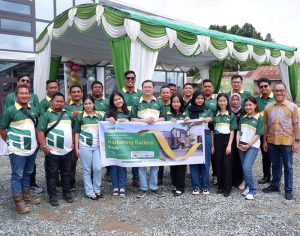Understanding Gen Z Characteristics: Why Is Criticism Central to Your Career Growth?
Generation Z, who now form a dominant part of the global workforce, is known as the Digital Native Generation. They are driven by a strong desire for self-development and meaning in their work (value-driven). Gen Z views employment not just as a source of income but as a pathway to unlocking potential and making a social impact.
However, Gen Z faces a unique challenge in the workplace: receiving criticism (feedback). Having grown up in a fast-paced social media environment that offers instant validation (likes and praise), Gen Z tends to seek rapid and specific feedback (real-time feedback). Consequently, some find it difficult to manage traditional, generalized, or defensive critiques.
For Gen Z to dismantle negative stereotypes and prove their professional maturity, the ability to process criticism into a genuine growth opportunity is an absolutely essential competency.
Here are four (4) strategic steps Gen Z professionals must adopt to convert criticism into career acceleration fuel, considering their unique preferences and needs:
1. Embrace Composure & Reframing: Turning Criticism into Objective Performance Data
Composure is the first and most critical step. For Gen Z, who highly prioritize mental health and work-life balance, a seemingly negative critique can quickly lead to burnout or the urge to job-hop.
- The Gen Z Mindset Shift: Instead of perceiving criticism as a personal attack, Gen Z must train themselves to view it as invaluable ‘Performance Data.’ Treat the critique like a bug report that requires immediate rectification.
- Immediate Action: Take a brief pause. Utilize your digital native analytical thinking to process the critique objectively. Ask yourself: “Is this data accurate? What is its impact on the team’s objectives?”
- By reframing the situation, you maintain emotional equilibrium (the first strategy) while simultaneously satisfying the Gen Z need for specific and quantifiable information.
2. Active Listening & Documentation: Applying the Principle of Real-Time Feedback
Gen Z values transparency and dislikes rigid bureaucracy, expecting real-time feedback rather than waiting for annual reviews.
- Instant Response, Deep Processing: After achieving composure, practice active listening (the second strategy). Leveraging their digital native capacity, Gen Z should use technology to quickly document the main points.
- Prioritize Actionable Items: Record not only the mistakes but also the suggested solutions or the negative consequences of the actions. This aligns with the Gen Z desire for immediate know-how and observable, concrete results.
- Well-documented feedback serves as a solid foundation for your career planning and continuous self-development.
3. Proactive Clarification: Demonstrating Open Communication Skills
Gen Z appreciates two-way communication and eschews stiff hierarchy. If the critique is vague, Gen Z has the responsibility to proactively seek clarification (the third strategy).
- Clarification as Proactivity: Never assume. Request further explanation with questions that focus on the solution and the outcome, not on self-justification. Example: “Thank you for the input. Moving forward, what specific steps do you expect me to take in the next project?”
- Creating a Safe Space: By professionally and confidently asking clarifying questions, Gen Z demonstrates both initiative and a willingness to learn, fostering a more transparent and open work culture—two core values for this generation.
- This step confirms that you are not just a recipient but an active participant in the improvement process.
4. Reflection & Turning Point: Cultivating a Strong Growth Mindset
Gen Z is intrinsically motivated by self-development and meaning. They must use criticism as fuel to achieve these aspirations (the fourth strategy).
- Transforming the ‘Blues’ into Momentum: Feeling disappointment (it’s okay to feel blue) is natural. However, Gen Z must move past this quickly and convert the valid points of criticism into specific and challenging self-development goals (turning over).
- Focus on Core Skills: Criticism often highlights deficiencies in soft skills (like oral communication or organizational skills)—areas frequently cited as challenges for Gen Z. Use the critique as a strong justification for enrolling in relevant training or mentorship programs.
- This reinforces that Gen Z seeks not just employment but continuous growth (continuous learning), transforming the risk of repeated mistakes into a long-term skill investment.
Last But Not Least: Making Criticism Your Competitive Edge
For the dynamic Generation Z, adopting the correct attitude toward criticism is a vital strategic move to navigate the competitive workplace. By employing the strategies of composure, real-time documentation, proactive clarification, and utilizing feedback as fuel for a growth mindset, you not only overcome negative stereotypes but also build a robust professional brand that showcases high maturity, adaptability, and leadership potential.










